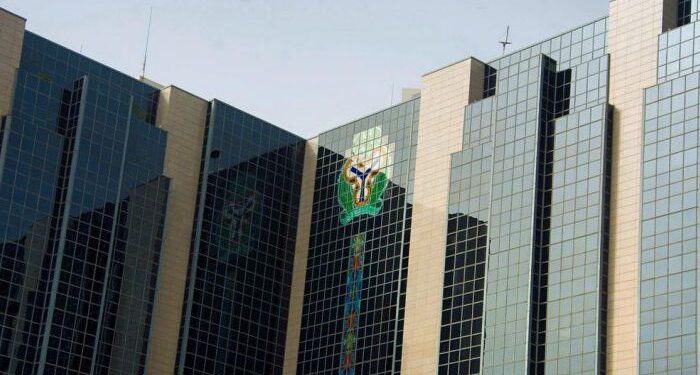The Central Bank of Nigeria (CBN) has reiterated its commitment to building a robust and resilient banking sector as the country enters a new phase of recapitalisation. This follows the apex bank’s directive to commercial banks to raise their capital base in response to inflationary pressures, naira depreciation, and the evolving global financial landscape.
In recent months, the CBN has intensified oversight of the financial system, stressing the need for Nigerian banks to remain competitive, stable, and adequately capitalised to meet the demands of a growing economy. The recapitalisation push is expected to help banks withstand both local and international economic shocks, maintain customer confidence, and support long-term investment in critical sectors of the economy.

Acting CBN Governor, Dr. Olayemi Cardoso, has stated that recapitalisation is not just a regulatory requirement but a strategic necessity to ensure that Nigerian banks can function effectively in a more integrated and technologically driven global economy. He explained that the recapitalisation programme will position banks to better support the federal government’s economic agenda, which includes boosting industrial productivity, expanding access to credit, and increasing financial inclusion.
The apex bank has already issued guidelines outlining the minimum capital requirements for different categories of banks, including international, national, and regional players. Banks have been given a timeframe within which to meet the new thresholds through mergers, acquisitions, rights issues, or fresh capital injections. Industry experts say the move is expected to trigger a wave of consolidation, reminiscent of the 2005 reform under former CBN Governor Charles Soludo, which drastically reduced the number of commercial banks and improved sectoral resilience.
Analysts believe that the recapitalisation exercise will not only stabilise the banking system but also increase transparency and investor confidence. It will also promote the entry of new players with strong financial backing, enhance lending capacity, and improve the quality of risk management practices in the sector. However, there are concerns that smaller banks may struggle to meet the new capital base unless they secure strategic partnerships or undergo mergers.
In anticipation of challenges, the CBN has promised to maintain open lines of communication with all stakeholders. The apex bank says it will provide technical support and regulatory guidance throughout the recapitalisation period to ensure that the process is seamless and does not disrupt financial intermediation. It has also emphasized the importance of corporate governance and risk management frameworks, stating that strong capital alone is not enough to guarantee sustainability if banks are poorly governed or engage in unethical practices.
The CBN’s focus on recapitalisation comes against the backdrop of wider macroeconomic reforms being implemented by the federal government. The liberalisation of the foreign exchange market, removal of fuel subsidies, and rising interest rates have placed considerable pressure on bank balance sheets. As the economy adjusts to these changes, the apex bank wants financial institutions to be in a strong position to provide support for both public and private sector growth.
Recent reports from financial rating agencies suggest that while Nigerian banks remain generally profitable, many are vulnerable to currency volatility and inflation-induced erosion of capital. This makes recapitalisation not just a proactive move, but a critical step in protecting depositors and safeguarding the integrity of the financial system.
Bank executives have expressed cautious optimism about the recapitalisation directive. Some say it presents an opportunity to reposition and strengthen market leadership, while others warn that it could result in temporary strain on earnings and capital buffers. Nonetheless, most agree that raising capital is essential to compete effectively in a dynamic economy and attract foreign investment.
Stakeholders across the financial services industry have called for a balanced approach to the implementation of the recapitalisation programme. They want the CBN to provide incentives and create an enabling environment that supports capital raising activities, particularly in a market still recovering from inflation and currency instability. Capital market operators have urged banks to engage investors early and maintain transparency in communicating their recapitalisation plans.
The Nigerian public has also shown interest in the unfolding development, especially as it relates to the safety of deposits and access to credit. Consumer rights advocates have urged the CBN to ensure that banks do not use the recapitalisation process as an excuse to increase service charges or reduce lending to small and medium-sized businesses. They argue that a resilient banking system must also be inclusive and responsive to the needs of all segments of society.
As the recapitalisation programme unfolds, the CBN has made it clear that its goal is to create a safer, more efficient, and competitive banking sector capable of supporting Nigeria’s long-term development objectives. The apex bank insists that building strong banks is a prerequisite for achieving economic stability, encouraging investment, and fostering innovation in the financial sector.
By focusing on sustainable growth, sound risk practices, and adequate capitalisation, the CBN is aiming to transform the banking landscape into one that is more resilient, responsive, and capable of meeting the demands of a modern economy.
Support InfoStride News' Credible Journalism: Only credible journalism can guarantee a fair, accountable and transparent society, including democracy and government. It involves a lot of efforts and money. We need your support. Click here to Donate
